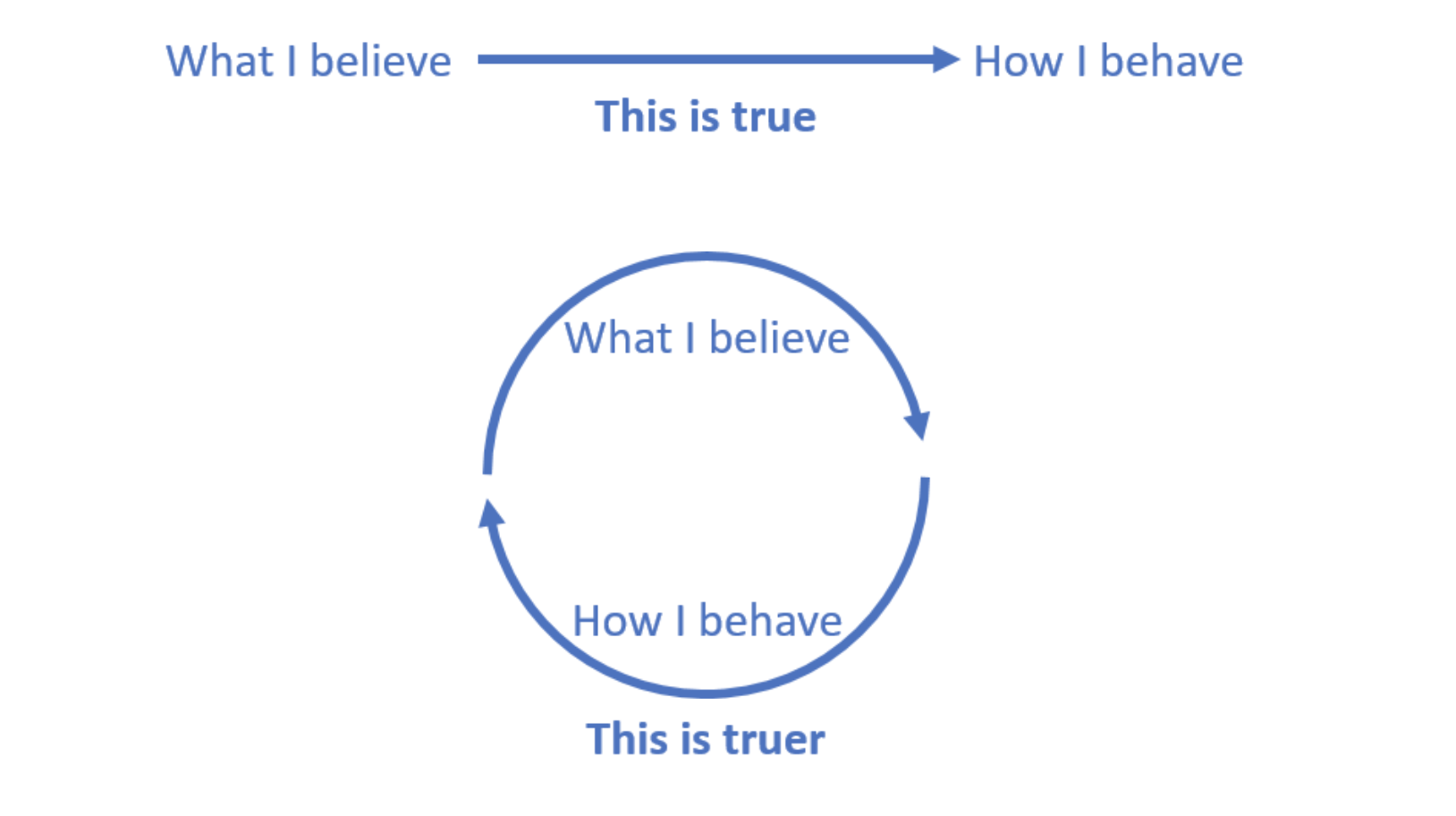Helpful habits and how to develop them
Resilient Christianity has a lot to do with establishing lifelong patterns and routines. In this second part of our series on resilience, Terry Young turns to Daniel and Colossians to highlight helpful habits

Let’s start with a story. A woman met a school friend who had become a nun and thought this was a surprising career for the schoolgirl she remembered. She asked her friend how she found her new life. ‘Ah!’ said the friend, ‘It’s OK once you get into the habit.’
Resilient Christianity has a lot to do with this little pun in establishing lifelong patterns and routines and in borrowing the concept of dressing up. Paul writes, for instance, ‘clothe yourselves with compassion, kindness, humility, gentleness and patience’… ‘and over all these virtues, put on love’ (Colossians 3:12-14).
This is a tricky area for protestants because we know that trying to work for salvation is a bad idea. We are taught that believing comes first and that behaviour follows. It’s the truth, but not the whole truth and forces us to gloss over key passages, especially James’ little letter. A wider truth is that how we behave also affects what we believe.

There are too many reasons to list here why faith and action are circular. Good behaviour reinforces and leads to better belief while good belief reinforces and leads to better behaviour.
One of the best-known stories in Daniel pivots around his prayer habit (Daniel 6:10): ‘Now when Daniel learned that the decree had been published, he went home to his upstairs room where the windows opened toward Jerusalem. Three times a day he got down on his knees and prayed, giving thanks to his God, just as he had done before.’
We don’t have many details of Daniel’s prayer life, but we know that he prayed alone and with friends (Daniel 2:17-18). It was a habit that unlocked mysteries and that was used against him by his enemies, leading to his spell in the den of lions.
Paul gives us more since regular prayer is one of his habits (Colossians 1:9). He encourages his Colossian friends to develop this habit and offers tips on how to pray and what to pray about (Colossians 4:2-4).
Let’s pick one thing from his list: how about thankfulness? For Paul, it’s a habit rather than a response. By urging us to be thankful (see also Colossians 3:15&17), Paul helps us to see that we can become more grateful and happier Christians by consciously saying thanks.
My wife and I have focused on giving thanks as we have tried in the past few years to make prayer a more central part of our life. We changed our habit under lockdown from praying together at the end of each day and in times of stress to spending time reading and praying together first thing in the morning. There are many benefits to reviewing topics for thanks and then specifically thanking God for them. It builds confidence, for instance, in God’s ability to solve the other problems we are laying out that day. It also makes us feel more positive and joyful. Our habits really can change the way we feel as well as strengthen our belief.
Daniel’s timely thanksgiving for God’s revelation about King Nebuchadnezzar’s dream (Daniel 2:19-23) is spectacular and provides a great template for thankful prayer. He and his friends have been engaged in urgent prayer to stop the executioner having their heads, and then Daniel gets a revelation overnight. Before he goes to tell the King, he explodes in a joyful and very specific paean of praise. Have you learned to thank like that?
Not covered by either Daniel or Paul, who appear to have been single, but alluded to by Peter (1 Peter 3:7) is the need for couples (and families) to pray together. Praying as a couple certainly does not happen by accident and requires commitment to find the time together. However, as noted above, it is well worth the effort.
Alongside prayer, resilient Christians, have to get to know their Bibles. Unlike us, Daniel not only read his Bible thoughtfully but also wrote part of it! We know he knew the Books of Moses and he tells us he has been reading Jeremiah (Daniel 9:1-2) which would have been a recent instalment. Paul talks about being steeped in Scripture (Colossians 2:7; 3:16), referring to dependence and maturity that take time and effort to acquire.
Developing good Bible study habits is hard. It’s a personal business and most effective when you find a way in that is fun and rewarding. I grew up in a Christian home and learned early about having a quiet time every day – time spent reading and praying. I probably spent at least a decade in my teens and into my twenties experimenting with the most rewarding way to use that morning spot. Later and with digital tools, a new world of opportunities opened up.
I’ve shared some ways to enjoy your Bible reading in Learning Under Lockdown, a series of blogs in May and June 2020. If you are looking to get more from your Bible, you might click on, trying something new, just listening, fast and slow reading, driven by curiosity or Bible study in a socially distanced world. If none of that works for you, please e-mail and we’ll go on a search together for satisfying study.
Regular watchful and thankful prayer, hungry Bible study… are there other helpful habits? Well, yes, Paul encourages us to talk about our faith to one another (sing, even!), to hold one another accountable – too many ideas to cover fully here!
If you’ve never even thought this way before, why not start with a psalm a day followed by a short prayer in which you ask God to give you wisdom for the day and guide you from there? If you have some good habits and want more, read Daniel and Colossians to see what else works for you.
The thing about habits is that you can only put on one at a time. Don’t kill yourself with a long list of resolutions. Start simply and build.
Image | Felix Russell Saw | Freely
This is part of a five part blog series called What can we do about resilience?
-
What can we do about resilience?
-
Helpful habits and how to develop them
-
Harmful habits and how to dismantle them
-
Hope
-
Headspace
Terry Young is a missionary kid who read science and engineering. After a PhD in lasers, he worked in R&D before becoming a professor, when he taught project management, information systems and e-business, while leading research in healthcare. He set up Datchet Consulting to have fun with both faith and work and worshipped at Baptist churches in Slough for 19 years before moving to the New Forest.
Acknowledgement
Although other pressures prevented Rob Wright from sharing in writing these blogs, discussing them with him helped me restructure my original thinking, for which I am grateful.
Do you have a view? Share your thoughts via our letters' page.
Baptist Times, 15/02/2023